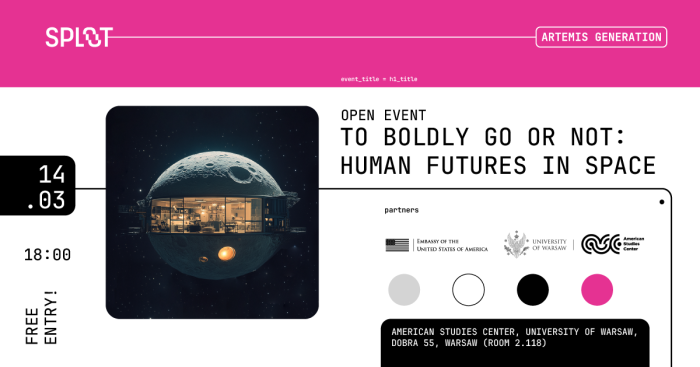After a decades-long slowdown of extra-terrestrial exploration, humanity seems poised to return to space. Some visions of this return are very ambitious, but much remains unclear about the feasibility, the scope, and the cost of expanding beyond the third planet from the Sun.
To think through these (and other) aspects through the lens of science fiction, space psychology, design and architecture, SPLOT Artemis Generation in collaboration with the American Studies Center, University of Warsaw, is hosting a discussion panel featuring Dr. Joanna Jurga, Dr. Agnieszka Skorupa, and Prof. Sherryl Vint and moderated by Prof. Paweł Frelik.
You can get 2 OZN points for participating in this event.

When & Where?
Date: Friday, March 14, 2025
Place: American Studies Center, University of Warsaw, Dobra 55, room 2.118
Time: 5:30-7:30 PM
Free entry
Who?
She has collaborated on research projects (Otodom Report “Emotions in a Square”) and participated in international exhibitions and festivals such as the Łódź Design Festival and Dutch Design Week. A finalist in competitions like MakeMe, Young Design, Innovation Ad, and Jutronauci. A juror in design-related competitions. The author of the podcast #BEZPIECZNIK and the book “Szałas na hałas.” She loves winter, practices free diving, and is an avid reader.




